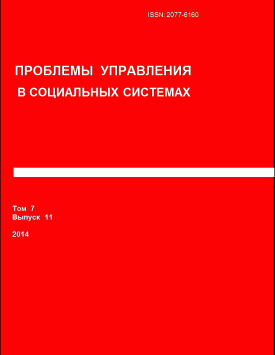Paragogy: Synergizing Individual and Organizational Learning
This paper describes a new theory of peer-to-peer learning and teaching that we call paragogy. Paragogy's principles were developed by adapting the Knowles's principles of andragogy to peer-based learning contexts. Paragogy addresses the challenge of peer-producing a useful and supportive context for self-directed learning. The concept of paragogy can inform the design and application of learning analytics to enhance both individual and organization learning. In particular, we consider the role of learner pro_les for goal-setting and self-monitoring, and the further role of analytics in designing enhanced peer tutoring systems.
Keywords
постановка целей,
самоконтроль,
взаимное обучение,
андрогогика,
peer-to-peer,
pedagogy,
organizations,
andragogy,
learning analyticsAuthors
| Cornelli Joseph | The Open University Milton Keynes (UK) | j.a.corneli@open.ac.uk |
| Danoff Jeffrey Charles | Mr. Danoff’s Teaching Laboratory (IL, USA) | danoff.charles@gmail.com |
Всего: 2
References
Jonathan Grudin: Why CSCW applications fail: problems in the design and evaluation of organizational (1988).
Mary-Jane Eisen: Peer-Based Learning: A New-Old Alternative to Professional Development. Adult Learning, 12(1) pp. 9-10 (2001).
Y. Engestrom: From communities of practice to mycorrhizae, in H. Hughes, N. Jewson, L. Unwin (Eds.), Communities of practice: Critical perspectives. London: Routledge (2007). (http://www.open.ac.uk/cetlworkspace/ cetlcontent/ documents/476902341f33c.pdf)
Kapp, Alexander: Platon's Erziehungslehre, als Padagogik fur die Einzelnen und als Staatspadagogik. Minden und Leipzig (1833).
M. S. Knowles: Andragogy, not pedagogy. Adult Leadership, 16(10), pp. 350-352 (1968).
M. S. Knowles: The modern practice of adult education: From pedagogy to andragogy. Chicago: Follett. (1980)
Laurie C. Blondy: Evaluation and Application of Andragogical Assumptions to the Adult Online Learning Environment, in Journal of Interactive Online Learning, 6(2) (2007) (http://www.ncolr.org/jiol/issues/ getfile.cfm? volID=6&IssueID=20&ArticleID=104)
MasaoAbe: Nishida's Philosophy of "Place". International Philosophical Quarterly 28 (4), pp. 355-371 (1988).
I. Nonaka, R. Toyama, N. Konno: SECI, Ba and Leadership: a Unified Model of Dynamic Knowledge Creation. Long Range Planning, 33(1), pp. 5-34 (2000).
J. P. Schmidt: Commons-based peer production and education. Short essay for the Free Culture Research Workshop, Harvard University (23 October 2009). (http://cyber.law.harvard.edu/fcrw/sites/fcrw/images/Schmidt_Edu-cation_FreeCulture_250ct2009.pdf)
Carl Bereiter: Education and Mind in the Knowledge Age. Lawrence Erlbaum Associates (2002)
M. Tennant: Psychology and adult learning. London: Routeledge (1997)
Y. Benkler and H. Nissenbaum: Commons-based peer production and virtue. Journal of Political Philosophy, 14(4), pp. 394-419 (2006).
Robert Milson and Aaron Krowne: Adapting CBPP platforms for instructional use. In Martin Halbert, editor, Symposium on Free Culture and the Digital Library, pp. 255-272 (2005). (http://arxiv.org/pdf/cs/0507028)
Piotr Konieczny: Wikis and Wikipedia as a teaching tool. International Journal of Instructional Technology and Distance Learning, 4(1) (2007). (http://citeseerx.ist.psu.edu/viewdoc/download? doi=10.1.1.113.7307&rep=re p1&type=pdf)
Susan Leigh Star and James R. Griesemer: Institutional Ecology, 'Translations' and Boundary Objects: Amateurs and Professionals in Berkeley's Museum of Vertebrate Zoology, 1907-39. Social Studies of Science, 19(3) (1989), pp. 387-420.
E. Wenger: Toward a theory of cultural transparency: Elements of a social discourse of the visible and the invisible. PhD Dissertation in Information and Computer Science, University of California, Irvine (1990). (http://www. ewenger.com/pub/pubEWdissertation.doc)
Jyri Engestrom: Why some social network services work and others don't - Or: the case for objectcentered sociality, published online at http://www. zengestrom.com/blog/2005/04/why-some-social-networkservices- work-and-others-dont-or-the-case-for-object-centered-sociality.html.
Y. Benkler: Common wisdom: Peer production of educational materials. Center for Open and Sustainable Learning at Utah State University, (2005). (http://www.benkler.org/Common_Wisdom.pdf)
George Siemens: What are Learning Analytics? published online at http://www.elearnspace.org/blog/2010/08/25/what-are-learning-analytics/.
Uwe Kirschenmann, Maren Scheffel, Martin Friedrich, Katja Niemann and Martin Wolpers: Demands of Modern PLEs and the ROLE Approach, in Sustaining TEL: From Innovation to Learning and Practice, Springer LNCS, Volume 6383/2010, pp. 167-182 (2010).
Joseph Corneli: Crowdsourcing a Personalized Learning Environment for Mathematics, Knowledge Media Institute, Technical Report, (http:// metameso.org/~joe/docs/probation-report-final.pdf).

